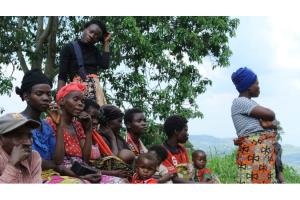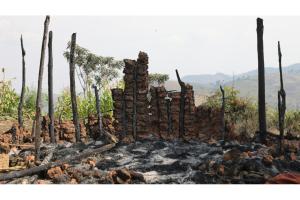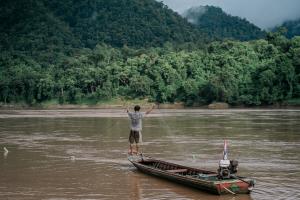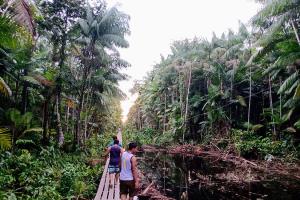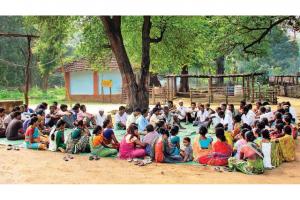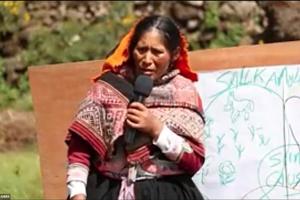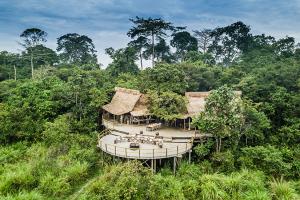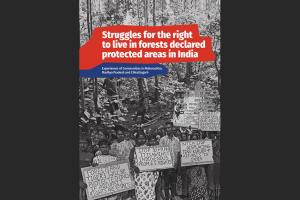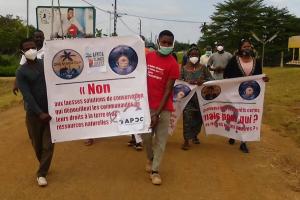Protected Areas
The 'parks without people' conservation model has its roots in the 19th century U.S.A. It has expanded worldwide and given rise to an elitist conservation industry dominated by big conservation NGOs. This model has become another major threat to the physical and cultural survival of forest-dependent communities, their knowledge and their traditional conservation practises.
Other information
22 August 2024
The African Commission of Human and Peoples Rights recently made public its historic ruling on the Indigenous Batwa Peoples’ right to return to their ancestral home from which they were violently evicted, when the Kahuzi-Biega National Park was created in Eastern DR Congo.
Bulletin articles
25 October 2023
With the support of international funding, the establishment of the Kahuzi-Biega National Park has led to the forced and violent eviction of the Batwa Indigenous People. The DRC government recently passed a new law on the rights of Indigenous Peoples, which, though a step forward, does not apply to lands that have already been designated as protected areas, nor does it make any mention of historic injustices.
Bulletin articles
30 March 2023
Forests in Cambodia have seen large-scale deforestation with rubber and cassava plantations, illegal logging and other economic interests. Besides, Protected Areas and carbon projects like REDD+ have severely affected forest communities. Despite the criminalization, communities fight back, underlining the important connection between living with their forests and having autonomy to enough, diverse and nutritious food.
Bulletin articles
30 March 2023
Indigenous Peoples and communities in the forests of Thailand are threatened with policies that have added a new type of asset: carbon credits. The legislation passed in the name of conservation and climate mitigation is in fact designed to limit the use of forest communities of their land and forests while encroaching them into smaller areas.
Bulletin articles
16 June 2022
Fossil fuels are at the root of the climate chaos – but the conditions for this crisis have been created by the interconnections and dependencies between colonialism, racism, patriarchy and class exploitation. To address climate chaos, therefore, it is necessary to address the unequal relationships of power upon which a fossil-fuel dependent capitalism is based.
Bulletin articles
16 June 2022
The ‘conservation’ model in India continues to enclose forests and evict communities in a deliberate attempt to undermine and scuttle the Forest Rights Act (FRA) - a landmark legislation that strengthens the authority of communities over their forests. Meanwhile, companies are allowed to destroy forests, even inside the conservation areas.
Action alerts
20 May 2022
From 24-29 May, 2022, IUCN’s 2nd Asia Parks Congress aims to set the agenda for Protected Areas in Asia for the next ten years. Expanding Protected Areas in Asia also means expanding evictions, violence and further deforestation.
Bulletin articles
23 March 2022
Women from the Ribeira River Valley -in the state of São Paulo, Brazil- have devoted themselves to opposing the concession of one of the region’s most important tourist parks. Their struggle is fundamental, and part of diverse resistances against the privatizing trend of creating ‘territories without people’. They remind us that their territory has been and is rooted in their stories, voices and resistance.
Bulletin articles
23 March 2022
The conservation industry is now promoting the idea of ‘buying up’ Conservation Concessions and reconstituting them as business models with profit-seeking aims. A case in point is the ‘African Parks Network’, which manages 19 National Parks and Protected Areas in 11 countries in Africa.
Publications
15 March 2022
New publication calls attention to the devastating impacts of Protected Areas in India.
Action alerts
26 November 2021
Communities in Nyanga province, Gabon, released the Bana / Mayumba Declaration in which they call for the suspension of the GRANDE MAYUMBA project, a multi-concession megaproject marketing as a so-called Nature-Based Solution.
